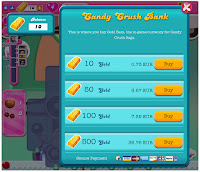This chapter talks about the concept of model development in digital marketing. A model is very important to understand because it tells us the flow of information. So due to the advancement of technology, the consumer is seeking products which are always present in the digital eco-system and can be bought anytime and anywhere. Consumers are not just consumers, they are contributors now. They help the brand to create new ideas, promotions, and products.
Since the buying patterns are changed, so firms are also changing their online revenue models. For example, companies buy slots on the most engaging websites, like a collaborative work done by HSBC (bank) and Orange mobile service provider, where HSBC bought a slot on the orange website, where people can transact easily if they want to buy mobile phones or upgrade their package. Like the revenue model of Facebook and Whatsapp, companies are earning ample amount of money by selling customers data to other entities. Some firms buy data from the research companies like AC Neilson to get to the actual target market. Lastly, Freemium model, where you have to pay a certain amount to get other advantages. The best example is Candy Crush, when you lose your every life, whether you have to wait or pay $1 to them to get five lives. Different between freemium and a Trail version is that freemium is not time bound.
Click ecosystem elaborates the concept of the actual behavior or a customer when they actually reach or land the desired website. Since most of the people entered through search engines (Google, Bing, Yahoo) then they stream themselves to different websites and finally landed on the actual site. To discuss that we need to have a model through which we can easily identify our customer's behavior. This model is known as the Intermediary model in e-commerce.
This model is divided into 4 parts 1) Consumer segments (To identify your customer, their lifestyle, age, gender, interest, in short profile them. 2) Search Intermediary (mostly include a search engine, from where did the customer entered in the eco-system). The intermediary site (other niche or open portals, like when you are especially looking for B2B websites, you can find it here). Destination sites (since you will land on that site which is giving you more online value proposition, it can be discounts, coupons, well-designed site architecture, easy to navigate).
Attribution model in e-commerce talks about how much attribute should be given to that website from whom my traffic is coming. For example, a person sees a dress on Facebook and then landed on your website but changed her mind. No conversion took place. But next day, she Googled it and landed on the same website and bought that dress. In that class, Facebook won’t be attributed, Google will.
Communication model talks about building a trust between sender and the customer. To catalyst this trust, companies include Opinion leaders (massive following and technical expertise) to talk about their brand.
Hofacker's model talk about how to increases the effectiveness of your website. Since Exposure is very important because your website is live 24/7 and people need to see your most important post or product on the top. Attention comes when you have a good site with complementary colors scheme. Comprehension tells about how your customer is interpreting your intended message. Yeilding talks about is the information is accepted by the consumer. Lastly, retention, where you can access whether the customer will come back again for purchase or not.
Lastly, we are going to discuss Neilson 90-9-1 rule, where he talks about Only 1 percent of the people in the whole ecosystem are heavy contributors, 9 percent are small contributors and actually spread the content and remaining 90 percent are those which only read and don’t spread the content.

ReplyDeletewhat is fantastic post? this is so chock full of useful information I cannot wait to dig deep and start utilizing the resource give me.your exuberance is refreshing.
Portal development Travel portal development Travel white label Travel Portal Solution B2C Travel Portal B2B Travel Portal Flight Booking API System Flight api integration
REALLY NICE INFORMATION
ReplyDeleteecommerce development companies
|
Ecommerce services
Amzaing information! Thanks for sharing these kind of information. keep us updated!
ReplyDeleteSEO Company Islamabad
Great post.
ReplyDeletehttp://www.escalade-alsace.com/forum/profile.php?mode=viewprofile&u=4591
Great post.
ReplyDeletehttps://www.question2answer.org/qa/user/AdliMajid
Great post.
ReplyDeletehttps://hubpages.com/@clintonmckelvey
There are 5 types of Google Ads campaigns which are as follows:
ReplyDelete1. Search Network Campaigns
2. Display Network Campaigns
3. Shopping Campaign
4. Video Campaigns
5. App Campaigns
Learn more in detail here: https://ppcexpo.com/blog/types-of-google-ads
Great post.
ReplyDeletehttp://seostrategyforbusiness.flazio.com/
Great post.
ReplyDeletehttps://postheaven.net/4vw2rmxt34
Great post.
ReplyDeletehttps://www.selfgrowth.com/articles/ultimate-meta-tag-guide-know-all-about-meta-tags
Great post.
ReplyDeletehttps://pinshape.com/users/1577501-alan-mata#designs-tab-open